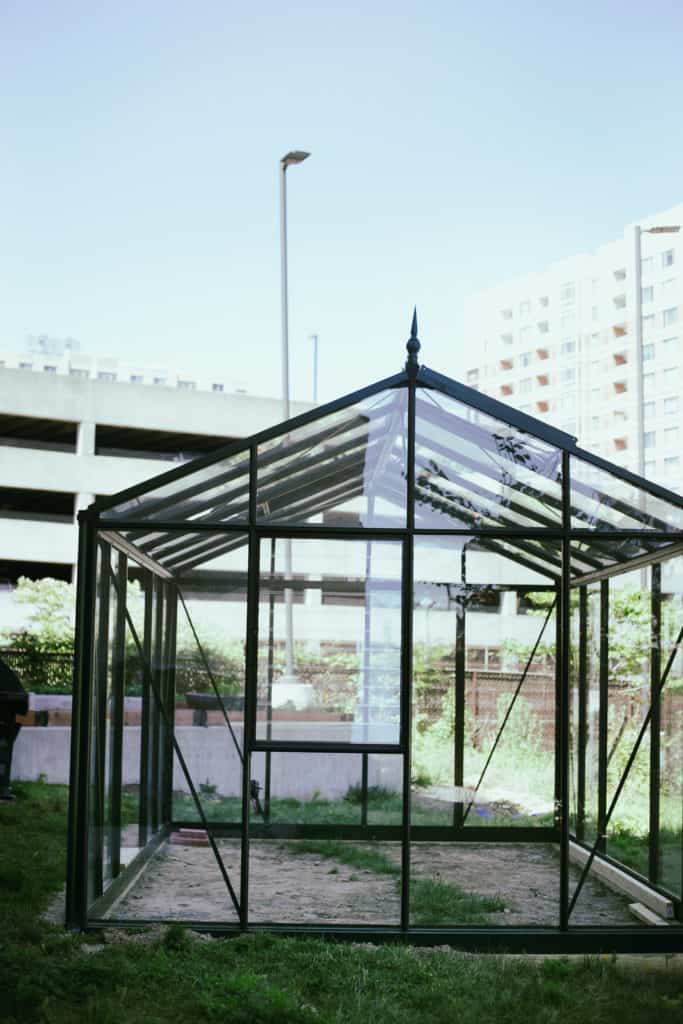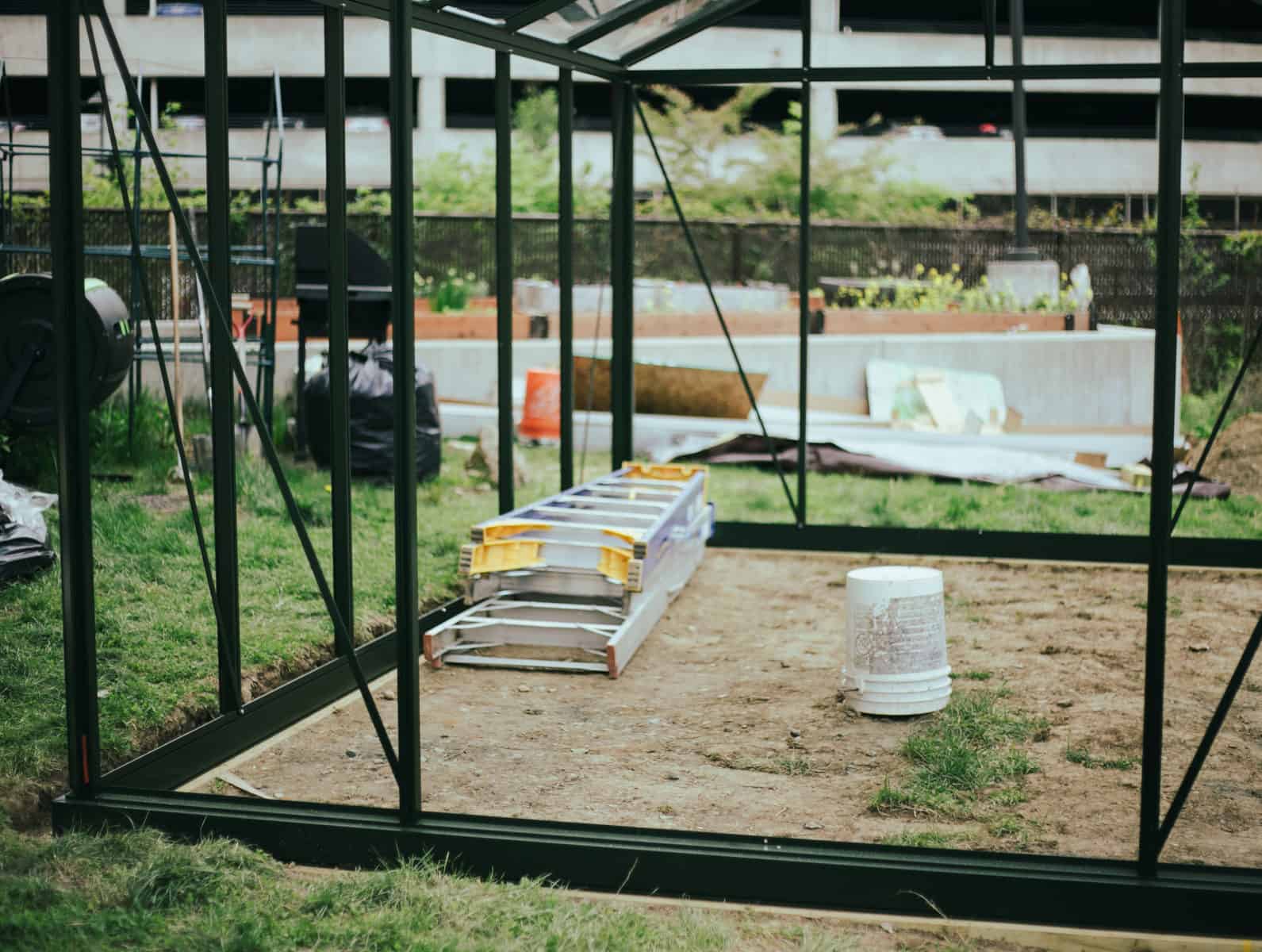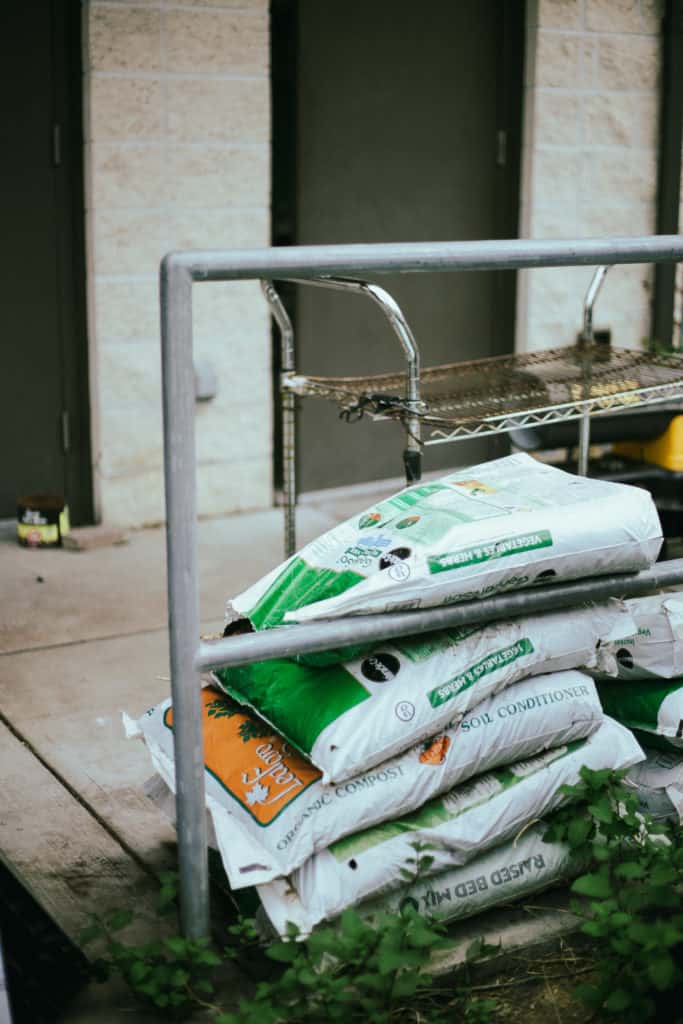

Shepherd’s Table has officially installed a greenhouse in our urban garden, the next step in ongoing efforts to develop our gardening program. The idea of a greenhouse arose when the question was pitched to Christina Moore, Director of Special Programs: if you could have anything for the urban garden, what would it be? What do you need? The urban garden itself had been Christina’s brainchild, after she began the enriching practice of gardening in her own life. She remembers spotting the patch of grass and sand behind our building and envisioning it as something more. She persistently voiced her idea of turning the land into a small garden, and “Didn’t take no for an answer,” she reflects. As it developed, staff and supporters alike fell in love with the bright patch of life in the middle of the city.
Between the daily meals served in our dining room and the Beyond the Table meals distributed out in the community, there is a large volume of people looking to Shepherd’s Table for food. Growing our own produce not only allows us to meet that demand, but to do so with food we can be confident is healthy and fresh. Our guests deserve only the best, and sustainably-grown produce from our own backyard—quite literally—is one way we ensure the quality of what’s served.
When asked what the garden needed to continue to flourish, Christina cited a greenhouse at the top of the list. Though it initially felt like a lofty goal, she recognized the role a greenhouse could play in dramatically increasing the variety and volume of produce Shepherd’s Table grows. The climate plays a limiting factor in what can survive outside, but with the controlled heat and light of a greenhouse, the horizons expand. Thanks to funds from the Montgomery County Food Production Gardening Grant, the dream has officially become a reality.

The greenhouse will grow produce like tomatoes, hot peppers, ginger, lemongrass, rosemary, cilantro, bok choi, carrots and multiple varieties of thyme, sage, and basil. For much of what’s grown, Shepherd’s Table receives these plants as donated seeds or transplants from partners like Red Wiggler Farm, Brookside Gardens and Koiner Farms. After finding a home in our urban garden, these young plants grow into ripe produce ready to be served from our kitchen.
In addition to increasing the volume of food at our disposal, growing our own food allows us to offer regional foods significant to the populations served. When staff realized some Hispanic guests were searching for peppers to add spice to their meal, we began growing peppers to meet this need. At the Parkland location of Beyond the Table, nearly half our guests are of Asian decent and prefer greens that originate from the continent. Again, growing our own produce allows us to intentionally curate meals with these ingredients.


Today, the garden primarily serves our guests as a food source, but Christina has much more in mind for the future of the project. The work and practice of gardening can be a meditative and empowering experience, one that clients at Shepherd’s Table could find deeply beneficial. In her own experience with PTSD, Christina has found relief in gardening. “I hope it does for them what is has done for me,” she shares. Gardening enables the individual to watch a living thing throughout its entire lifecycle, and to facilitate that growth and life. Describing the experience, Christina explains “It’s so incredibly meditative watching things grow, having something you’ve created.” There’s empowerment in reaping the fruits of your own labor, enjoying something nutritious that you, yourself, guided into existence.
“It’s so incredibly meditative watching things grow, having something you’ve created.”
Christina Moore
At Shepherd’s Table, we hope to invite our guests into the practice of self-sustainability, individually and together as a community. As we move towards hosting agricultural workshops and opportunities, the urban garden will provide a literal opportunity to step into self-sufficiency. When guests grow food served to the entire Shepherd’s Table community, they will have a chance to see themselves as caretakers and providers for their community at large. Ultimately, the goal is to teach newly-housed clients to grow their own food, so they can integrate the practice and its fruits into their own lives.
In accordance with a three year plan for the garden, classes for clients will begin in the latter half of this year. Koiner Farms, who has already played a key role in donating plants to the urban garden, plans to help Shepherd’s Table develop a curriculum for gardening classes, based on resources offered at the farm. Currently, the biggest obstacle to this next phase of the garden is the COVID-19 pandemic. When capacity restrictions are fully lifted and it’s safe to implement classes for small groups of people, Shepherd’s Table will be ready to step into this next phase.
“In a situation where nothing is your own, it can be inspiring to have something that is yours,” Christina explains, drawing on her personal experience of gardening as a meditative and empowering practice. “That carries over into all other aspects of life.” This is what we hope to bring to our guests: flourishing in all aspects of life, not the least of which is self-sustained nutrition. The newly installed greenhouse is an exciting step in that direction.

